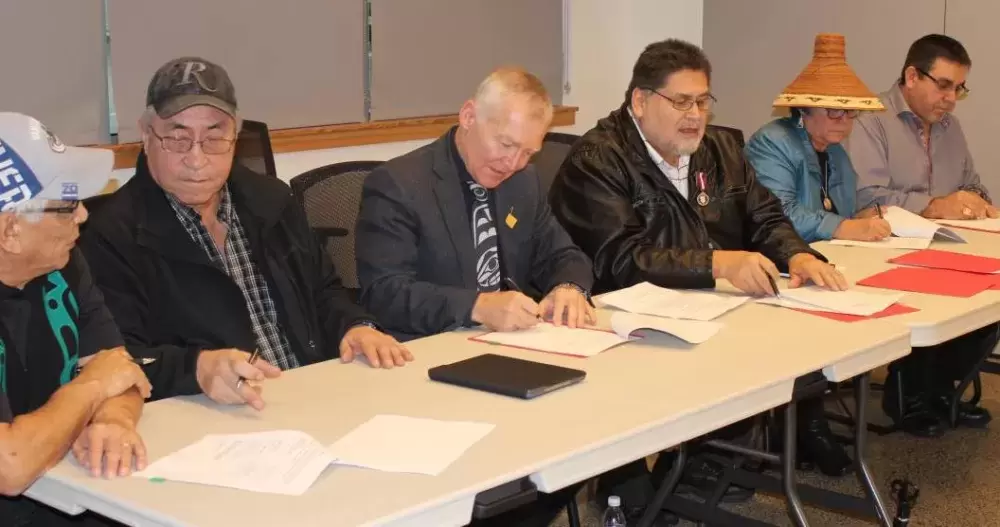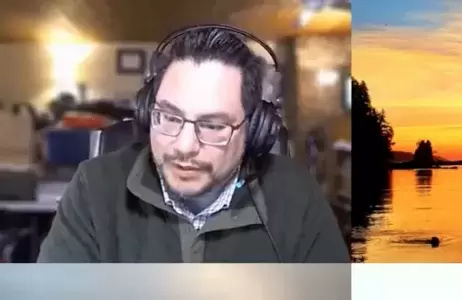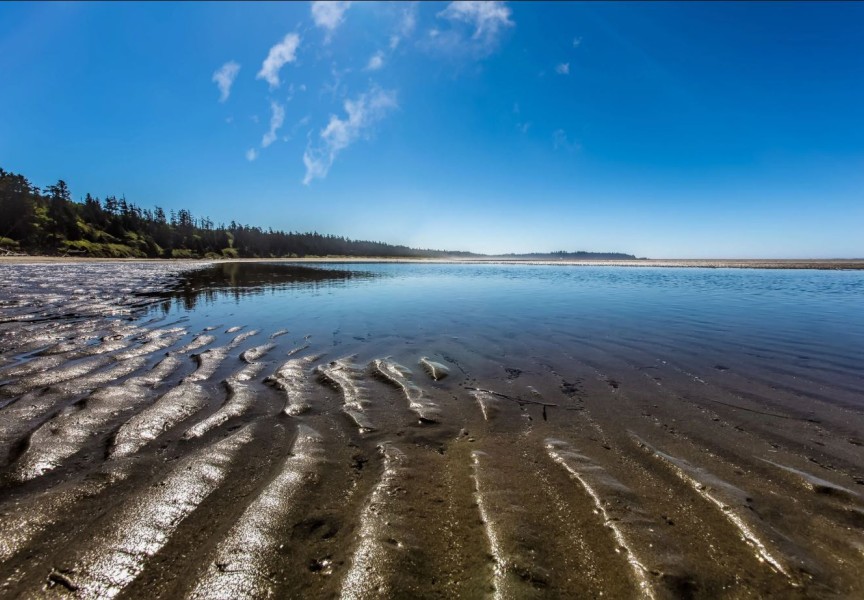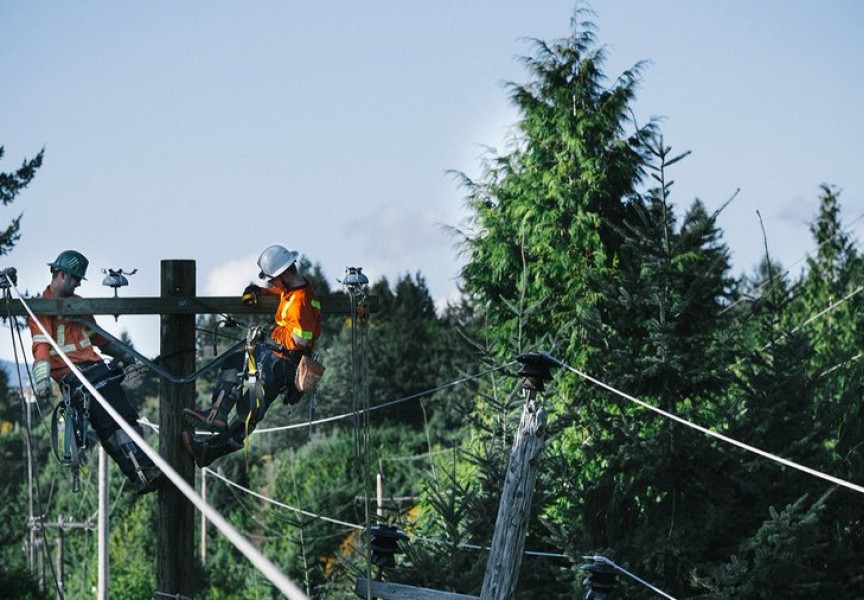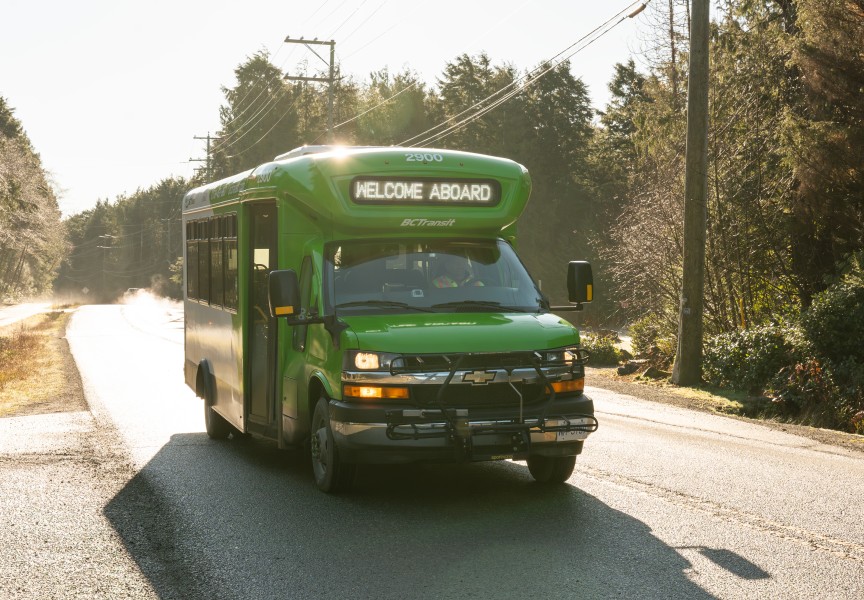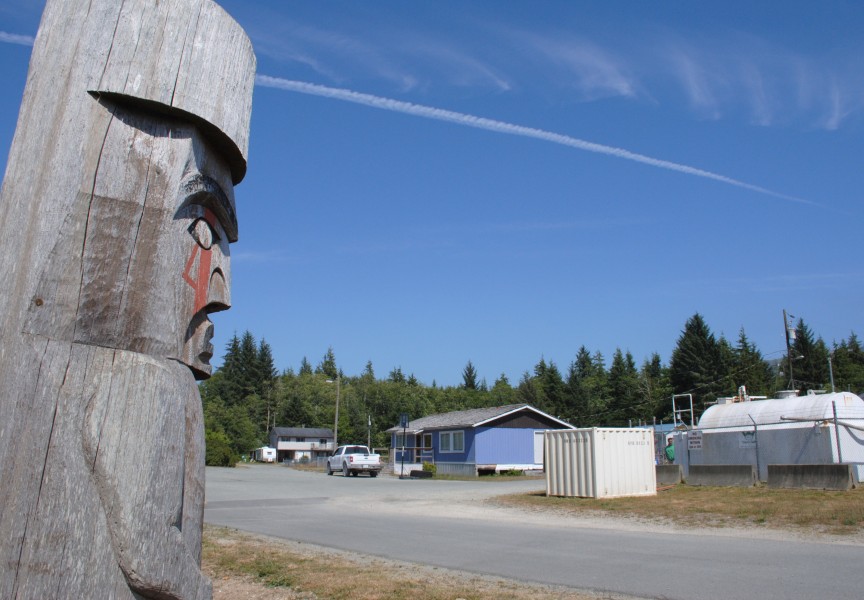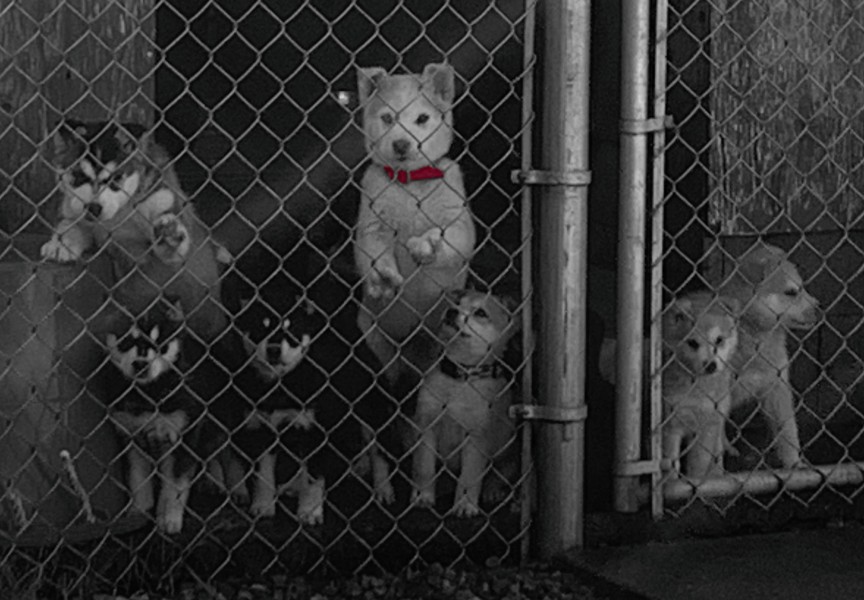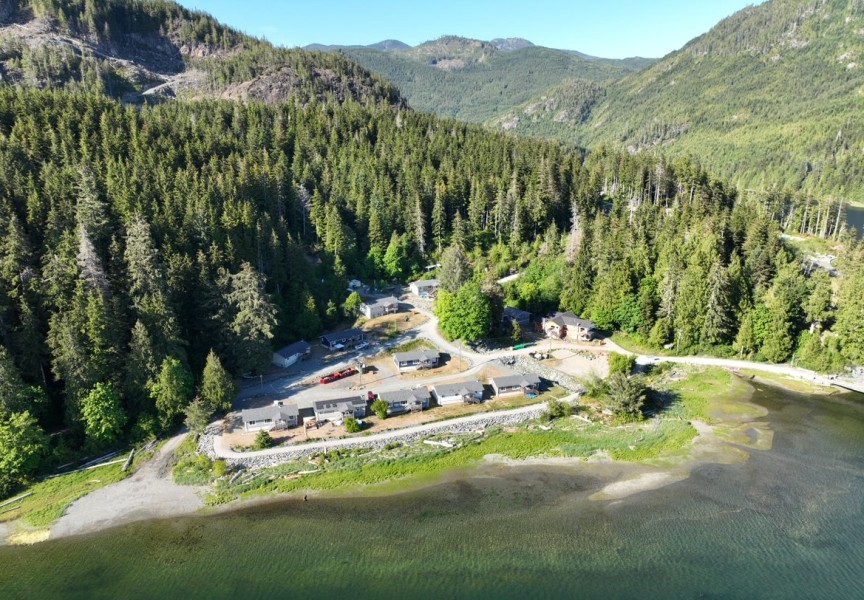Ten years after the Maa-nulth Treaty took effect, Ka:'yu:'k't'h'/Che:k'tles7et'h' First Nations (KCFN) are ready to take a seat with regional government.
KCFN becomes a full voting member of the Strathcona Regional District board April 1 in keeping with a treaty commitment made by the five Maa-nulth signatory nations, four of which already occupy seats on the Alberni-Clayoquot Regional District executive.
Kevin Jules, KCFN’s legislative vice-chief, will join the SRD board as a full voting member for the first time on April 14. He is no stranger to the board, having attended meetings as a non-associate member with observer status for the past couple of years.
“With us joining, it opens up a lot of doors,” Jules said.
On the stroke of midnight on April 1, 2011, the five Maa-nulth nations had good reason to celebrate. Maa-nulth became the first treaty signed on Vancouver Island under the B.C. treaty process and the first such agreement involving multiple nations in the province. Two years later, the five treaty nations attained law-making authority, a giant step forward on the long journey to self-government.
Uchucklesaht Chief Councillor Charlie Cootes Sr., who served as president of the Maa-nulth Treaty Society at the time, described it as a “long, bumpy journey” getting to that point.
“From the first Europeans that came to this country, we have been negotiating, trying to negotiate our place in the mainstream of this country,” Cootes told Ha-Shilth-Sa in 2013. “We are now accountable to our people, not to Ottawa.”
Slowly but surely, opportunities flowed from that watershed date. The settlement brought capital transfers totalling $73 million, 24,500 hectares of land, resource revenues plus funds for treaty implementation, programs and services.
The treaty set a 10-year time frame for signatories to join their respective regional districts. Huu-ay-aht and Ucluelet joined ACRD in 2012, Uchucklesaht joined in 2014 and Toquaht took its place at the regional government table five years ago. KCFN opted for the full term.
“We took the full 10 years to see what kind of approach should be taken,” Jules said. “As we came up to that date, we started collaborating with SRD on how that would work. The process is one of mutual respect and learning. We’ve been meeting live weekly in planning for that date and keeping in contact with regional district members to keep communications open. They see how we work as a government and we see how their structure works.”
John Jack, who joined the ACRD board nine years ago as a Huu-ay-aht councillor, described the process of joining regional government as fundamental to self-determination.
“It’s linked pretty directly to our experience with treaty and the reasons we entered into treaty,” said Jack, who has chaired the ACRD board for the last five years. “We found it important to control our own destiny, to make decisions on land and laws.”
A key component of First Nations self-government is managing relationships with other governments, Jack explained: “Before we got into treaty, [there] really wasn’t a formal relationship with other local governments in any appreciable way.”
Prior to the treaty there was a transparent wall between First Nations and neighbouring communities with no formal relationship between them. The federal Indian Act usurped traditional ways of life. Any interactions between First Nations fell under the purview of the Crown, the federal government. Local government was left out of the conversation, seen as weakness in B.C.’s relationship building. Communities were held back.
Along the “path forward” (t’asii in Nuu-chah-nulth), KCFN and the SRD have drawn from experiences of other Maa-nulth nations, developing fact and orientation guides. Jack was guest speaker during a recent SRD meeting on Zoom, explaining the process to KCFN representatives.
Mutual understanding is key to what Jack describes as an integration of First Nation and regional district governments on executive and administrative levels. Change has been gradual, but integration has fundamentally altered the conversation in direct and indirect ways.
“It used to be that Port Alberni, largest city in the regional district, could carry the day without having to consider concerns of west coast or smaller Alberni Valley communities. Now it must engage with more than one of two of its allies in vote,” he said. “That has changed the nature of the conversations. Rather than being a City of Port Alberni show, it is now something much more collegial and involves everyone at the table.”
A seat at the table led to new connections through related organizations such as UBCM and chambers of commerce.
“Being a part of a regional district ended up opening a lot of doors, not only political and social doors but economic ones,” Jack said. “There are political leverages you can use that don’t really cost anything.”
He expects the process for Ka:'yu:'k't'h'/Che:k'tles7et'h' First Nation it will be somewhat different as the first to join Strathcona Regional District, “but the potential for creating new relationships and new opportunities is still there.”
The only negative aspect for integration is the amount of time required, he told KCFN reps. Designates have to be prepared to fully commit and engage. His advice to others starting the same path?
“Learn as much as you can about how regional districts work and be prepared to teach those folks how you plan to go about governing yourself,” Jack said. “That will lessen concerns about compatibility.”
SRD meetings continue to be held on Zoom due to pandemic safety measures, but Jules said technology is helping with the process.
“I’m just thrilled and look forward to becoming a member and excited to see the other board members are very accepting,” Jules said.
Wilfred Cootes, the Uchucklesaht Tribe’s councillor responsible for land and resources, has served on the ACRD board from the start seven years ago. He had only good things to say about joining regional government.
“The experience has been really positive both for me and my government,” Cootes said. “It’s nice to have a voice in the decisions of the district. It’s invaluable,” he added.
His advice?
“I’d say, don’t be afraid to have your voice heard because every voice at the table matters. It’s good to have your nation’s needs heard; it’s a needed perspective.”

